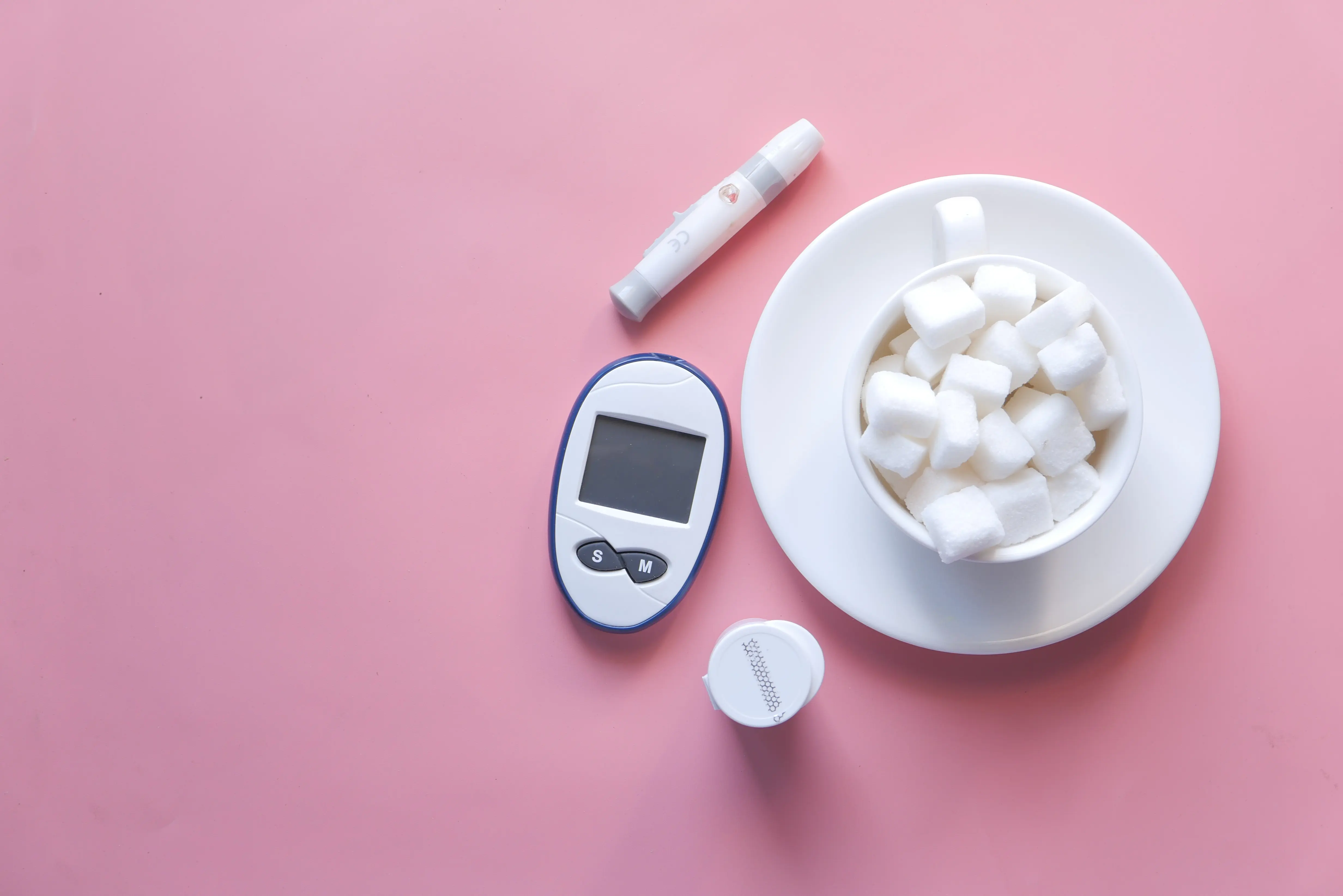Diabetes mellitus has long since become a widespread disease. In Germany alone, over eight million people are living with the diagnosis – and the trend is rising. “Our unhealthy Western lifestyle, characterized by too little exercise and the consumption of processed, high-calorie foods and sugary drinks, leads to weight gain, insulin resistance, and type 2 diabetes,” explains Dr. Alexandra Schoeneich, partner at the Diabetes, Hormone, and Metabolism Center at Isarklinikum Munich. The good news: Type 2 diabetes can often be prevented or at least significantly delayed with a healthy lifestyle.
Understanding what happens in the body
In diabetes, the blood sugar level is permanently elevated. While type 1 diabetes is usually genetic and occurs in childhood or adolescence, type 2 diabetes develops gradually – often over years. Overweight, lack of exercise, and an unfavorable diet are the main risk factors.
The body's cells become increasingly insensitive to the hormone insulin, which is supposed to transport sugar from the blood into the cells. How much does sugar consumption affect the diabetes risk? Dr. Schoeneich: “It always depends on the amount of sugar and how the sugar is consumed - alone or accompanied by fat or protein. That is better, for example within a meal.
Isolated sugars cause blood sugar levels to rise faster than sugars that come accompanied, like a piece of plum cake with cream. Daily and frequent consumption of sugar, whether isolated or accompanied, can, besides overweight, promote insulin resistance and thus increase the risk for type 2 diabetes."
The five pillars of diabetes prevention
1. Exercise is medicine
Regular physical activity improves the insulin sensitivity of the cells and lowers the blood sugar level. It doesn’t have to be high-performance sports: brisk walking, cycling, swimming, or dancing are ideal. Regularity is important – integrate exercise into your daily life, take the stairs instead of the elevator, and walk more often. “150 minutes of moderate exercise and at least two moderate strength sessions per week can reduce the risk of type 2 diabetes,” says Dr. Alexandra Schoeneich.
2. Keep weight in a healthy range
Excess weight, especially belly fat, significantly increases the risk of diabetes. Even a moderate weight loss of five to ten percent can significantly improve insulin sensitivity. Set realistic goals and avoid crash diets—a slow, sustainable weight loss is more promising.
3. Eat smart instead of depriving

















